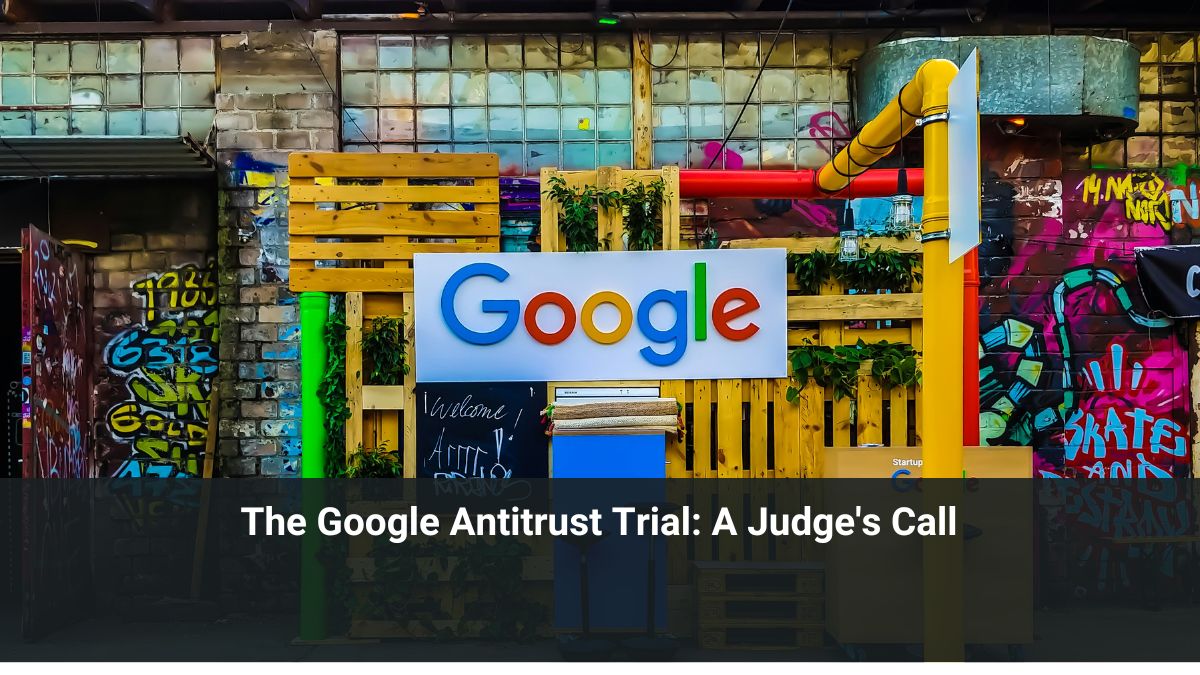Uncategorized
The Google Antitrust Trial: A Judge’s Call

A Pivotal Moment in the Tech Antitrust Battle
In a landmark decision that could reshape the balance of power in the tech industry, a federal judge in Alexandria, Virginia, has ruled that the upcoming antitrust trial against Google will be decided by a judge rather than a jury. This ruling marks a significant setback for the Justice Department, which had sought a jury trial when it filed the case last year, alleging that the tech giant violated federal antitrust laws by building a monopoly on the technology that powers online advertising.
As someone who has closely followed the growing scrutiny of big tech companies and their dominance in various markets, this development has far-reaching implications. While the government’s right to a jury trial was largely based on its claim for monetary damages, the true significance of this case lies in the potential remedies beyond financial compensation, such as the possibility of forcing Google to sell off parts of its advertising technology.
The Unconventional Move that Tipped the Scales
In a surprising twist, Google took the extraordinary step of writing the government a check for more than $2 million, effectively rendering moot the government’s claim for monetary damages. This strategic move, which multiplied the government’s initial claim for damages by three, as allowed in antitrust cases, ultimately swayed the judge’s decision.
U.S. District Judge Leonie Brinkema likened the receipt of the money, which was paid unconditionally to the government regardless of the trial’s outcome, to “receiving a wheelbarrow of cash.” This analogy encapsulates the weight of Google’s move and its impact on the trial’s format.
The Jury Trial Debate: A Constitutional Conundrum
While the government argued that the check Google wrote was insufficient to moot the damages claim, prompting a technical discussion over quantifying the damages, the judge ultimately ruled in favor of Google. In her ruling, Brinkema stated that the amount of Google’s check covered the highest possible amount the government had sought in its initial filings.
However, the constitutional question of whether the right to a jury trial applies to a civil suit brought by the government remains unanswered. Google asserted that this right does not extend to such cases, while the government disagreed but chose not to seek a ruling on this constitutional issue.
Separating the Twin Antitrust Battles
It is important to note that the antitrust trial in Virginia is separate from another case in the District of Columbia, where a judge has heard closing arguments in a lawsuit alleging that Google’s search engine is an illegal monopoly. While the judge in that case has yet to issue a verdict, the outcomes of these two antitrust battles could have far-reaching consequences for the tech industry and the broader economy.
As we navigate these uncharted waters, it is crucial to maintain a balanced perspective. While the government’s efforts aim to safeguard competition and protect consumers from anticompetitive practices, we must also recognize the immense contributions of tech giants like Google to economic growth and innovation.
A Call for Nuanced Discourse and Responsible Regulation
In a statement issued after the hearing, Google expressed its satisfaction with the court’s ruling, stating that “this case is a meritless attempt to pick winners and losers in a highly competitive industry that has contributed to overwhelming economic growth for businesses of all sizes.”
While the tech giant’s perspective is understandable, it is important to acknowledge the valid concerns raised by antitrust authorities regarding potential monopolistic practices and their impact on fair competition.
As we move forward, it is essential that we foster a nuanced discourse that considers the complexities of this issue. Rather than taking polarized stances, we must strive for a balanced approach that promotes innovation and economic growth while ensuring a level playing field for all market participants.
Responsible regulation and oversight are paramount in this era of rapid technological advancement. By engaging diverse stakeholders – including tech companies, policymakers, consumer advocates, and legal experts – we can work towards creating a regulatory framework that fosters healthy competition, protects consumer interests, and encourages continued innovation.
A Moment of Reflection and Foresight
As the Google antitrust trial unfolds, it serves as a poignant reminder of the intricate interplay between technology, competition, and societal well-being. While the decision to have a judge render the verdict may be a setback for the government’s initial strategy, it does not diminish the significance of this case or the broader implications it holds for the future of the tech industry.
In the words of Judge Brinkema, the amount of Google’s check was akin to “receiving a wheelbarrow of cash.” Perhaps this metaphor can serve as a catalyst for us to reflect on the true value we place on fair competition, responsible innovation, and the delicate balance between corporate interests and the greater good.
As we navigate this pivotal moment, let us embrace the opportunity to shape a future where technology empowers, rather than stifles, healthy competition and consumer choice. By engaging in open and inclusive dialogue, we can collectively chart a path that fosters innovation while upholding the principles of fairness and equity that underpin a thriving, democratic society.
